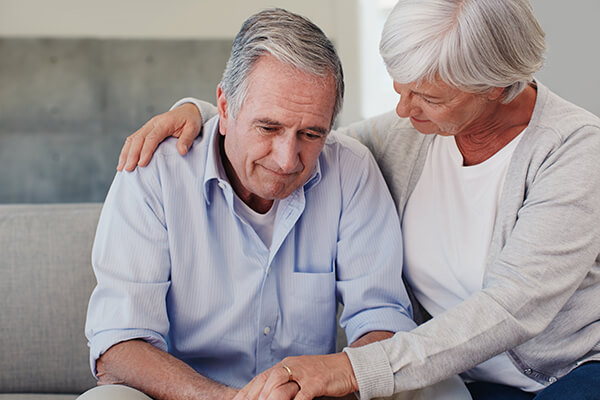

Many Cancer Caregivers Report Feeling Unprepared for Caregiving Challenges
September 27, 2016 by NCI Staff
Many family members who care for loved ones with cancer do not feel adequately prepared for the caregiving tasks they assume and need help to make informed decisions about end-of-life care, according to a new study.
“Our study found that many cancer caregivers experience high levels of emotional stress,” said Erin Kent, Ph.D., of the Healthcare Delivery Research Program in NCI’s Division of Cancer Control and Population Sciences. “Many caregivers need to perform medical or nursing tasks without feeling fully prepared or trained to carry them out.”
These tasks, Dr. Kent explained, can include changing wound dressings, managing infusion ports, and ensuring that patients follow complex regimens of oral medications. She presented the study findings this month at the American Society of Clinical Oncology Palliative Care in Oncology Symposium in San Francisco.
2.8 Million Cancer Caregivers in the United States
Researchers have had difficulty collecting specific data on the experiences of cancer caregivers, in part because caregivers are so busy, noted Dr. Kent.
To address this problem, she and her colleagues used data from an annual survey conducted by the National Alliance for Caregiving. Based on data from the 2015 survey, the group estimates that 2.8 million individuals in the United States are providing informal care for an adult family member or friend with cancer.
Cancer caregivers devoted more hours to caregiving each week than did noncancer caregivers (32.9 hours versus 23.9 hours), the researchers found. Cancer caregivers were also more likely than noncancer caregivers to report caring for patients in “high-burden” situations, as measured by an index that factors in hours of caregiving per week and the level of assistance provided for activities of daily living such as bathing and feeding (62% versus 38%).
Many cancer caregivers are called on to help loved ones with complex treatment decisions soon after a diagnosis, noted Dr. Kent. “Care transitions are often unpredictable and intense,” she added.
The researchers also found that cancer caregivers were more likely to communicate with health care professionals and to advocate on behalf of the patient (62% of cancer caregivers versus 49% of noncancer caregivers).
Despite their engagement with health care providers, cancer caregivers were nearly twice as likely as noncancer caregivers to report needing help and information for making end-of-life decisions (40% versus 21%).
The Interdependence of Patients and Caregivers
“This study is important because it draws attention to the families of patients,” said Laurel Northouse, Ph.D., R.N., of the University of Michigan School of Nursing, who was not involved in the research.
“We know that caregivers are vital to cancer patients’ well-being,” Dr. Northouse continued. “Fewer resources are directed to help caregivers. As researchers, we need to identify the essential needs of caregivers and then build those into care.”
A goal of the study was to learn more about the nature of cancer caregiving and identify commonalities and differences among cancer caregivers and caregivers for patients with other diseases.
“Certainly, this research is intended not to downplay the challenges of other caregivers, but rather to highlight the experience of cancer caregivers and to raise awareness about all of the tasks that caregivers perform and may not feel adequately prepared to carry out,” said Dr. Kent.
The new findings highlight the need for additional research to better understand at what point providers and clinicians should intervene to assess the well-being of caregivers, Dr. Kent added.
“Patients and caregivers are interdependent,” noted Dr. Northouse. The intensity of the cancer caregiver experience can lead to emotional distress among caregivers, which can, in turn, affect the patient’s well-being, she added.
“Cancer caregivers need information and support right away,” Dr. Northouse continued. “Too often, there is a delay in getting caregivers the help they need. We may think that caregivers can figure things out, but this study shows that cancer caregivers say they need information and lack confidence about how to provide high-quality care.”
























.png)









No hay comentarios:
Publicar un comentario